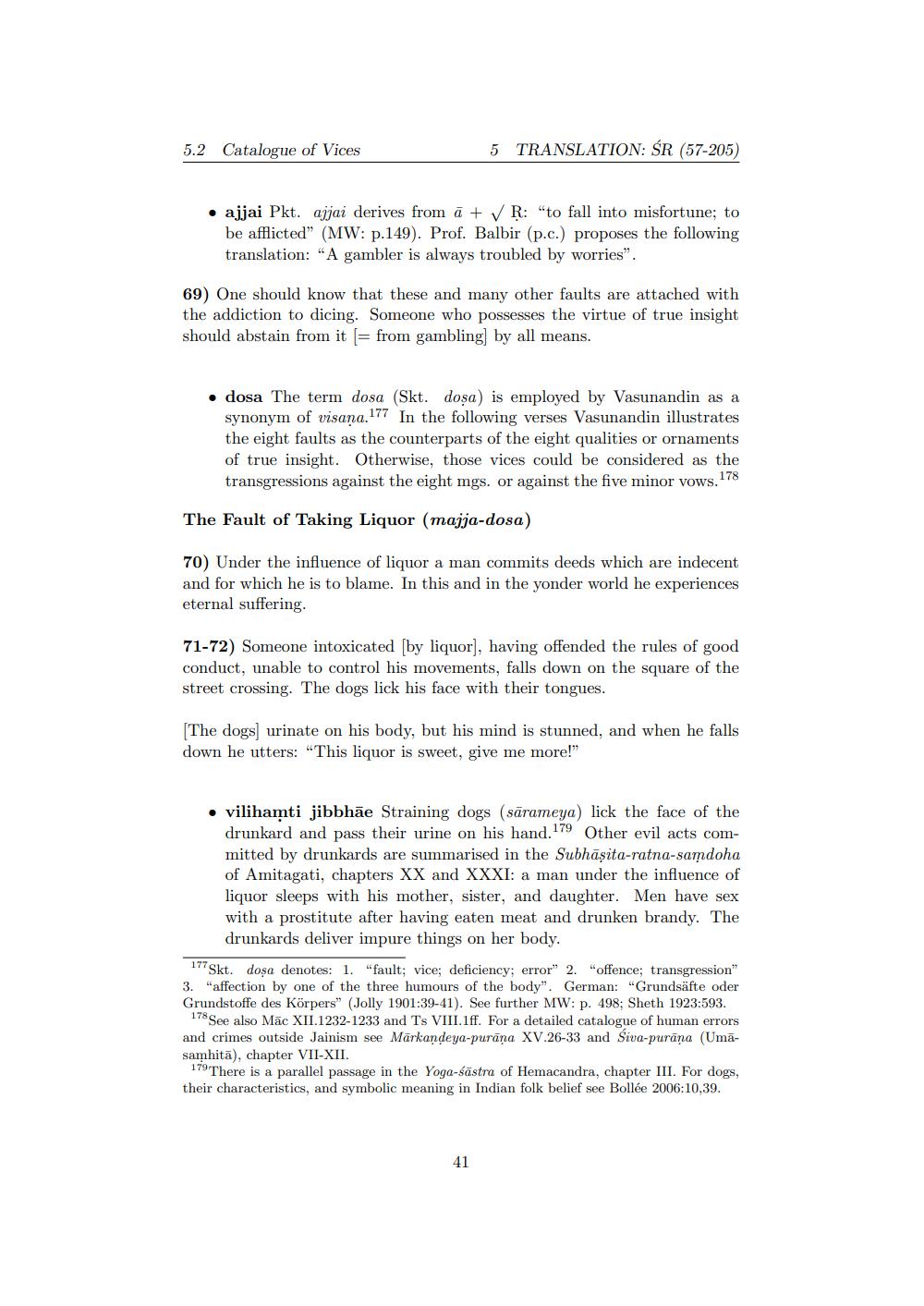________________
5.2
Catalogue of Vices
5 TRANSLATION: ŚR (57-205)
• ajjai Pkt. ajjai derives from a + V R: "to fall into misfortune; to
be afflicted" (MW: p.149). Prof. Balbir (p.c.) proposes the following translation: "A gambler is always troubled by worries".
69) One should know that these and many other faults are attached with the addiction to dicing. Someone who possesses the virtue of true insight should abstain from it = from gambling] by all means.
• dosa The term dosa (Skt. dosa) is employed by Vasunandin as a
synonym of visana.177 In the following verses Vasunandin illustrates the eight faults as the counterparts of the eight qualities or ornaments of true insight. Otherwise, those vices could be considered as the transgressions against the eight mgs. or against the five minor vows. 178
The Fault of Taking Liquor (majja-dosa)
70) Under the influence of liquor a man commits deeds which are indecent and for which he is to blame. In this and in the yonder world he experiences eternal suffering.
71-72) Someone intoxicated [by liquor), having offended the rules of good conduct, unable to control his movements, falls down on the square of the street crossing. The dogs lick his face with their tongues.
[The dogs) urinate on his body, but his mind is stunned, and when he falls down he utters: "This liquor is sweet, give me more!"
• vilihamti jibbhāe Straining dogs (sārameya) lick the face of the
drunkard and pass their urine on his hand. 179 Other evil acts committed by drunkards are summarised in the Subhasita-ratna-samdoha of Amitagati, chapters XX and XXXI: a man under the influence of liquor sleeps with his mother, sister, and daughter. Men have sex with a prostitute after having eaten meat and drunken brandy. The drunkards deliver impure things on her body.
177 Skt. dosa denotes: 1. "fault; vice; deficiency; error" 2. "offence; transgression" 3. "affection by one of the three humours of the body". German: "Grundsäfte oder Grundstoffe des Körpers" (Jolly 1901:39-41). See further MW: p. 498; Sheth 1923:593.
178 See also Māc XII.1232-1233 and TS VIII. 1ff. For a detailed catalogue of human errors and crimes outside Jainism see Mārkandeya-purana XV.26-33 and Siva-purana (Umāsamhitā), chapter VII-XII.
179 There is a parallel passage in the Yoga-śāstra of Hemacandra, chapter III. For dogs, their characteristics, and symbolic meaning in Indian folk belief see Bollée 2006:10,39.




